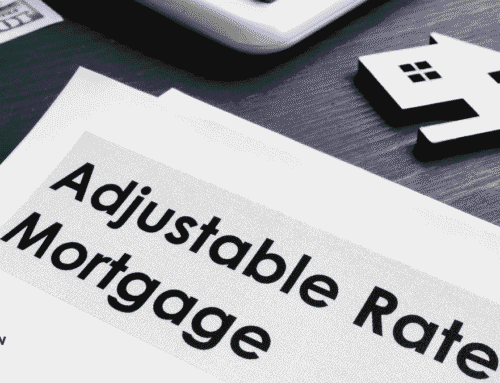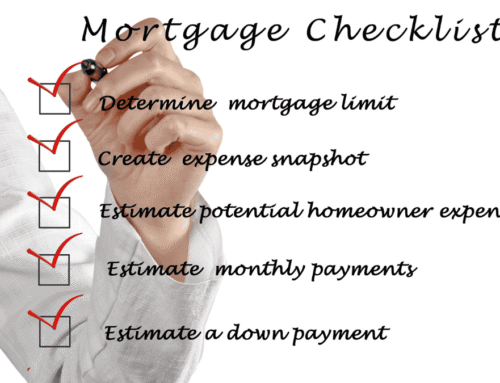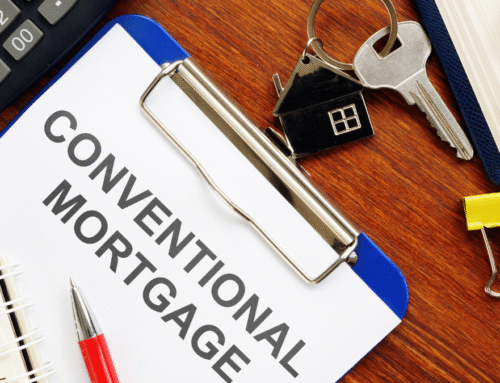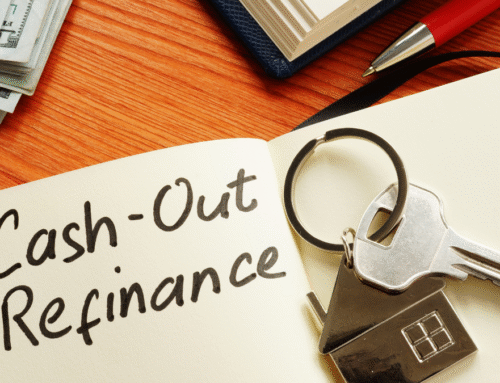Foreign National Mortgage Rates: How to Get a Better Interest Rate on Your Foreign National Mortgage
Foreign National Mortgage Rates: A Clear Guide for International Investors
Updated:
For international investors, buying U.S. property can be very rewarding. But getting a mortgage as a non-resident foreign national is a bit different. I’ve purchased over 120 investment properties in the U.S. as a foreign national, and in this guide you’ll learn everything you need to know about foreign national mortgage rates, and how to get the very best interest rate on your own foreign national loan. Remember, mortgage rate in the U.S. change daily. For up to date rates currently available for foreign nationals, see current rates below.
Table of Contents
- The Different Types of Foreign National Mortgage
- Fixed vs Adjustable (ARM) vs Interest Only
- What Influences Your Interest Rate on a Foreign National Mortgage
- Upfront Interest (Points) on Foreign National Mortgages
- How to Get the Best Interest Rate on Your Foreign National Mortgage
- Current Foreign National Mortgage Rates (updated)
- Final Thoughts – Making Your U.S. Property Investment Journey a Success
Key Takeaways
- Rates are Often Higher: Mortgage rates for foreign nationals are usually higher compared to loans for U.S. citizens (see current rates below).
- Credit & Income: You might not need to prove your credit score or verify personal income, depending on the type of loan and lender.
- Money in Reserve: Lenders often want you to show cash reserves for a number of months mortgage payments.
- Specialist Lenders: There are a ton of banks and private lenders with foreign national loan programs. Working with a broker that has access to a range of lenders and programs is the best approach.
While this guide covers foreign national mortgage interest rates, you can learn more about foreign national mortgages in general in my Foreign National Mortgage Guide.
VIP PRIORITY INVESTOR LIST
Get the Best Foreign National Mortgage Rate Deals and Off-Market US Investment Properties in Your Inbox Every WeekYES! ADD ME TO THE PRIORITY INVESTOR LIST
The Different Types of Foreign National Mortgage
First, let’s understand the different types of loans that are available for foreign nationals and non-residents. If you are buying a second home or vacation property, you might use a conventional mortgage. If you are buying rental properties that produce income (like my clients and I), you should consider a DSCR loan.
Pro Tip: The documentation, guidelines, and underwriting requirements vary between loan types. Check out my foreign national mortgage documentation checklist.
Foreign National Mortgage Loan Comparison
| Loan Type | Ideal For | Qualification | Typical Lenders |
|---|---|---|---|
| Conventional | Vacation homes, second homes | Requires proof of income, credit, and financial assets | HSBC, First American Bank, Quontic, LendSure |
| DSCR | Rental property investors (incl. STRs, 2–4 units; select 5+ via small-balance programs) | Based on property’s income (DSCR), not personal income | GetWaltz, LendCity |
| ITIN | Investors who file U.S. taxes with an ITIN (no SSN) | ITIN required; alternative/foreign income documentation; larger down payment and reserves common; typically higher rates | Portfolio & specialty lenders (availability varies by state) |
Programs and LTVs vary by lender and state. For DSCR specifics, see the DSCR Loan Guide and Rates.
Foreign National Mortgage Rates: Fixed vs Adjustable (ARM) vs Interest Only
Whether you choose a conventional or DSCR mortgage, the interest rate could be fixed or variable (ARM), and amortized or interest-only. Not to state the obvious, but fixed rate loans have a fixed interest rate, while ARM mortgages have an initial fixed rate period, and revert to an adjusting interest rate thereafter. Interest only loans are as they sound – interest only, rather than amortized with principal and interest payments – although they often convert to an amortized after the initial fixed rate period.
Fixed Rates Foreign National Mortgages
Just as the name implies, fixed rate mortgages have a fixed rate of interest for the term of the loan. Typically, loans terms for fixed rate foreign national mortgage are 15 years and 30 years. This is the most common types of loan used by homebuyers in the USA. I use 30-year fixed rate DSCR loans when I’m buying rental properties in the U.S. because it helps me to plan my cash flow projections with some level of certainty.
Foreign National ARM Mortgages – Adjustable Interest Rate
ARM foreign national mortgages have lower interest rates for an initial period then revert to an adjustable rate. So you might consider using an ARM mortgage if you think interest rates will fall in the future, or you intend to sell or refinance the property within the initial lower fixed rate period.
ARM mortgages come in varying combinations, including:
- 5/1 ARM: Fixed for 5 years, then adjusts annually
- 5/6 ARM: Fixed for 5 years, then adjust every 6 months
- 7/1 ARM: Fixed for 7 years, then adjusts annually
- 7/6 ARM: Fixed for 7 years, then adjusts every 6 months
- 10/1 ARM: Fixed for 10 years, then adjusts annually
- 10/6 ARM: Fixed for 10 years, then adjust every 6 months
The first number refers to the fixed rate period, and the second number refers to the adjustment (reset) period, For example, with a 5/1 ARM mortgage, the “5” refers to a fixed rate period for the first five years, and the “1” signifies the rate will change (reset) once per year after the initial fixed rate period has ended. For a 7/6 ARM, the initial fixed rate is for 7 years, then the rate adjusts every 6 months thereafter. The interest rate during the fixed rate period tends to be lower than standard 15 or 30-year fixed rate mortgages, making ARM mortgages a good option if you plan to sell or refinance shortly after the initial fixed rate period ends.
Interest Only Foreign National Loans
There are also some interest only loan options for foreign nationals. Specific loan terms vary from one lender to another, but some rental property investors use interest only DSCR loans to improve their monthly cash flow, and/or help a property qualify for a loan due to the lower monthly payment.
For example, with an interest only DSCR loan, the first 10 years are interest only, then the mortgage reverts to a fully amortized (principal and interest) mortgage for another 30 years. Interest rates tend to be a little higher on interest only loans. Some lenders will qualify the loan based on the future fully-amortized payment, so you still have to have a solid rental property with excellent cash flow to qualify.
Comparing ARM vs Fixed Rate vs Interest Only Foreign National Mortgages
Fixed-Rate vs Interest Only vs Adjustable-Rate Mortgages (ARMs) for Foreign Nationals
| Feature | Fixed-Rate Mortgage | Adjustable-Rate Mortgage (ARM) | Interest-Only (IO) |
|---|---|---|---|
| Interest Rate | Remains the same for the life of the loan | Starts lower, then adjusts per index (e.g., SOFR + margin) with caps | Rate can be fixed or ARM; IO often adds a small pricing premium vs amortizing |
| Monthly Payments | Predictable and consistent | Lower during initial fixed period; can rise after resets | Lowest during IO period; rises when amortization begins |
| Initial Rate | Typically higher than comparable ARM | Typically lower than fixed at start | Similar to matching fixed/ARM but often +0.125%–0.375% premium vs amortizing |
| Rate Adjustment | Not applicable | Adjusts after initial term (e.g., 5/6, 7/6, 10/6) per caps | Depends on structure: fixed-IO (no index) vs ARM-IO (resets per index) after IO period |
| Ideal For | Long-term investors seeking stability | Short/medium holds expecting to sell or refinance before resets | Investors prioritizing near-term cash flow or improving DSCR |
| Risk Level | Low — no payment surprises | Higher — payment may increase after resets | Medium to higher — payment jump after IO; higher if combined with ARM |
| Prepayment Penalties | May apply (program-specific) | May apply; can be higher or longer on some programs | May apply; confirm step-down and minimum-interest language |
| Principal Reduction | Amortizes from month one | Amortizes from month one | No principal reduction during IO period |
| DSCR / Qualification Impact | Neutral — based on full amortizing payment | Helpful at start (lower payment improves DSCR); reset risk later | Strong — lowest payment during IO can materially improve DSCR/eligibility |
What Influences Your Interest Rate on a Foreign National Mortgage
Like mortgage rates for U.S. citizens, foreign national mortgage rates track the 10-years treasury bond yield. That said, there are other factor that influence your mortgage interest rate, including:
- Credit Score: As I mentioned above, not all foreign national loans use your credit score in underwriting. While credit will be a factor for conventional mortgages, it’s not usually used in underwriting for DSCR loans for non-residents.
- Loan Amount: Interestingly, very small loans (under $100,000) tend to have higher interest rates. At the same time, the interest rate can start to go up for very large loans as well. Typically, loans in the region of $100,000 to $350,000 tend to have the best interest rates.
- Down Payment and LTV: Loans with a higher loan-to-value (LTV), tend to have higher interest rates.
- Lender Specifics: Lenders all have different lending criteria, fees, and interest rates. In my experience, the lender you choose will have a big impact on your interest rate and fees. For more information, your can review my list of foreign national mortgage lenders.
- Prepay Penalties: Loans with higher prepayment penalties, or longer prepay penalty periods tend to have lower interest rates.
- Points: You can pay points (upfront interest) at closing to secure a better interest rate. This is often worth doing if the cost of the points is lower than the amount of interest you would save over the period of time you intend to own the property.
- Market: Mortgage terms in the U.S. vary from state to state. lender have specific state overlays that influence the terms they offer based on location.
- Economic Conditions: Mortgage rates in the U.S. are influenced by wider economic conditions. Conventional loan rates tend to track the 10-year treasury yield, and DSCR loans track the SOFR rate. But other factors also play a part, like FED interest rates, and the strength of the jobs market which all form a part of lenders risk assessment.
- Real Estate Experience: With investor-focussed DSCR loans, lenders take into account your real estate experience. A borrower with 5 properties might get a better interest rate than a first time investor.
Upfront Interest (Points) on Foreign National Mortgages
You can pay upfront interest – known as points – on a foreign national loan to reduce the interest rate. This in called an ‘interest rate buydown’. One point typically equals 1% of the total loan amount. So, for a $200,000 mortgage, one point would be $2,000. In most cases I’ve seen, paying 1 point will reduce the interest rate on the loans by 0.25%.
While that might seem counterintuitive, it can actually make a lot of sense. I recently helped a client from Canada purchase a rental property in the US. The client paid 4 points ($4,500 in this case), which reduced mortgage rate by 1% for the term of the loan. The total interest savings amounted to $36,000 over the term of the loan!
Total Interest Savings by Paying Discount Points on a $200,000 Mortgage
| Points Paid | Upfront Cost | Interest Rate | Monthly Payment (P&I) | Total Interest Paid | Interest Savings vs. 7.00% |
|---|---|---|---|---|---|
| 0 Points | $0 | 7.00% | $1,330.60 | $279,016 | – |
| 1 Point | $2,000 | 6.75% | $1,297.20 | $267,993 | $11,023 |
| 2 Points | $4,000 | 6.50% | $1,264.14 | $257,090 | $21,926 |
| 3 Points | $6,000 | 6.25% | $1,231.43 | $246,297 | $32,719 |
| 4 Points | $8,000 | 6.00% | $1,199.10 | $235,600 | $43,416 |
How to Get the Best Interest Rate on Your Foreign National Mortgage
There are few things you can do to optimize your loan application and ensure you get the best interest rate possible. The process varies between DSCR loans and conventional mortgages, but here’s a rough guideline:
- DSCR Loans: If you’re buying a rental property, make sure you have accurate property information, and the property has a good DSCR ratio. You can use my DSCR Loan Calculators to work out the DSCR ratio, closing costs, and estimated interest rate.
- Personal Paperwork: Make sure you have access to all of the paperwork you’ll need to prove your identity, income and assets, and credit (if using a conventional mortgage). If your documents aren’t in English, you’ll need to have them officially translated and notarized/apostilled. If you’re buying the property in your own name, you’ll need and International Tax Identification Number (ITIN). These can takes weeks or even months to process, so get it done early.
- U.S. Entity Paperwork: If you’re buying your property with a U.S. entity like and LLC, LP, or Trust, get it set up ahead of time, and apply for your Employer Identification number (EIN) right away. The IRS can be slow to issue EIN numbers for non-residents and this can really hold up your mortgage application process. have the paperwork ready to provide to your lender on request.
- Down Payment: Budget for the biggest down payment possible. A lower loan-to-value will get you a better interest rate.
- Consider Points: As I mentioned above, you can pay upfront interest to your lender in exchange for a lower interest rate for the term of the loan. This can make sense if you intend to hold the property for a long time.
Current Foreign National Mortgage Rates — Updated September 12th 2025
The following table shows current estimated foreign national mortgage rates. These rates are updated weekly, but please do remember that rates and terms vary significantly based on the lender, property, and borrower. For an up to the minute quote based on your specific circumstance, please schedule a call.
Current Foreign National Mortgage Rates
| Loan Type | Base U.S. Avg Rate (as of Sep 11, 2025) | Foreign National Est. Rate (Est.) | Notes |
|---|---|---|---|
| 30-Year Fixed | 6.48% (Freddie Mac weekly avg, week ended Sep 11) | ~7.23% – 7.98% | Based on Freddie Mac weekly average; typical foreign-national premium of ~0.75%–1.50%. Freddie Mac / FRED |
| 15-Year Fixed | 5.58% (Freddie Mac weekly avg, week ended Sep 11) | ~6.33% – 7.08% | Based on Freddie Mac weekly average; typical foreign-national premium of ~0.75%–1.50%. Freddie Mac / FRED |
VIP PRIORITY INVESTOR LIST
Get the Best Foreign National Mortgage Rate Deals and Off-Market US Investment Properties in Your Inbox Every WeekYES! ADD ME TO THE PRIORITY INVESTOR LIST
Final Thoughts – Making Your U.S. Property Investment Journey a Success
If you want to buy real estate in the USA, understanding the types of mortgage that are available, and foreign national mortgage rates is an important piece of the puzzle. Over the past 10 years, I’ve seen the range of lenders with foreign national loan programs increase dramatically. Now, with range of options to choose from, including fixed rate and adjustable rate mortgages, and DSCR loans for rental property investors, it’s never been easier to get a much better rate.
If you’d like to discuss current real estate financing options for foreign nationals, and find the very best interest rate available today, you can connect with me or my team below.
GET PRE-APPROVED TODAY!
Start your U.S. real estate investment journey today and unlock exclusive financing opportunities. Book a Free 1-2-1 Discovery Call with a member of our senior management team to discuss your personalized strategy.
“Having personally invested in over 120 US rental properties from overseas, I know the true value of getting the right advice and support.
David Garner – Cashflow Rentals
GET PRE-APPROVED FOR U.S. FINANCING TODAY
Start your US real estate investment journey today, and book a Free 1-2-1 Discovery Call with a member of our senior management team.
“Having personally invested in over 120 US rental properties from overseas, I know the true value of getting the right advice and support.
David Garner – Cashflow Rentals

Frequently Asked Questions (FAQs) on U.S. Mortgage Rates for Non-Resident Foreign National Mortgage Loans
Here are common questions international investors ask about getting mortgage loans in the U.S. as non-residents.
Q: Are mortgage rates higher for non-resident foreign nationals than for U.S. citizens?
A: Yes, usually. Interest rates for foreign national loans are often higher. This is because lenders see more risk when lending to people who don’t live in the U.S.
Q: What is the usual down payment for a foreign national mortgage loan?
A: Down payments for foreign national mortgage loans are often higher. They usually range from 20% to 40% of the property’s price. The exact amount depends on the loan type and lender.
Q: Do I need a U.S. credit score to get a foreign national mortgage?
A: Not always. Some lenders for foreign national loans can use international credit reports. They might also check other credit proofs. DSCR loans, especially, don’t usually need a U.S. personal credit score. They mainly check the property’s rental income.
Q: What is a DSCR loan, and why do international investors like it?
A: A DSCR (Debt Service Coverage Ratio) loan is for rental properties. To get it, the property’s expected rent must be enough to cover its loan payments. International investors like it because it often means they don’t need to show personal foreign income or U.S. credit.
Q: Are ITIN loans for non-residents? What do they usually need?
A: Yes, ITIN loans are for non-U.S. citizens who have an Individual Taxpayer Identification Number (ITIN). They typically need proof of U.S. income. They might also look at your U.S. credit history or other credit proofs.
Q: What kinds of papers should international investors get ready for these loans?
A: Get ready with your valid passport, U.S. visa (if you have one), proof of foreign income and job (often translated), bank statements (foreign and U.S.), international credit reports or references, and the signed paper to buy the property.
Q: Should I compare offers from many foreign national lenders?
A: Yes, definitely. It’s very important to compare loan offers (like rates, fees, and terms) from several special foreign national lenders. This helps you get the best and most suitable loan for your U.S. property investment goals.












